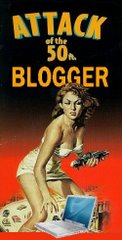Sunday Music: Louis Armstrong

"Satchmo"(short for "Satchelmouth," because of the damage his forceful technique caused to his lips) was born in New Orleans in August of 1901, although he proudly claimed July 4, 1900 as his birthdate for the rest of his life. Armstrong's childhood was fractured by abandonment, poverty and a stint in the New Orleans Home for Colored Waifs, a reform school. His salvation was Storeyville, the red-light district of New Orleans and the birthplace of jazz. Armstrong said, "Every time I close my eyes blowing that trumpet of mine—I look right in the heart of good old New Orleans...It has given me something to live for.”
Most people are familiar with Louis Armstrong as a jazz legend, and I don't need to gloss over that legacy here. As I learned more about him, I found the breadth of his talent even more astounding. Satchmo seems to have had a drive to create--all the time, in any medium. He authored two autobiographies, the first when he was only 35 years old, and was a prolific correspondent. Then, there's the collages. When Armstrong was on tour, he carried a steamer trunk of reel-to-reel music tapes with him, since they were lighter and less fragile than records. In addition to music, he recorded his own reminiscences, and sometimes just left the deck on to pick up ambient noise. Queens College houses the Louis Armstrong Collection archives, which includes 650 of his tape boxes. Nearly all are decorated with Armstrong's collages, and scrapbooks are bursting with even more. When not touring, he made at least one a day, the kind of discipline most artists would envy. A book of his artwork is due in early 2009.
It's hard to choose songs from such a vast catalog, so I just went with my sentimental favorites. "Saint James Infirmary" was recorded in 1929, and "Do You Know What It Means To Miss New Orleans?" in 1947.
Reel to Reel Louis Armstrong(Paris Review, 2008) [Link]








